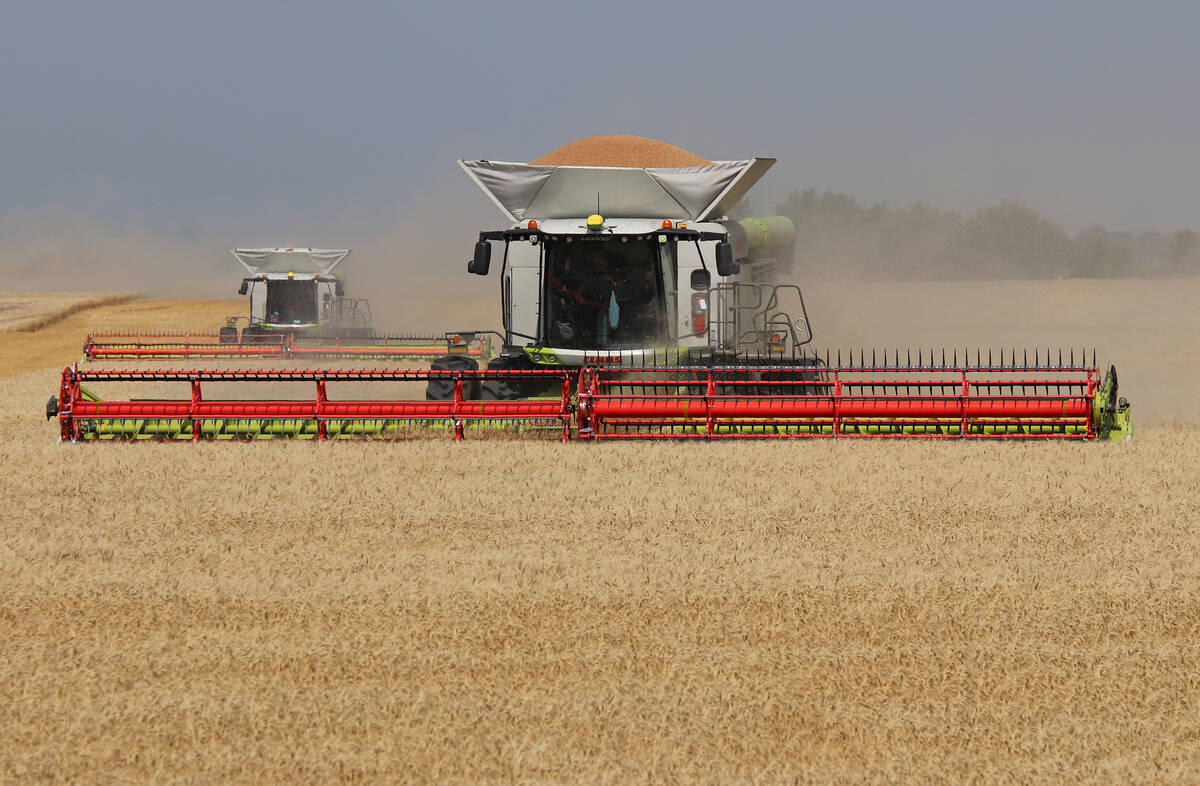Federal and provincial governments are presenting a united front to make sure threatened U.S. tariffs don’t go forward, according to prime minister Justin Trudeau.
The tariffs proposed by U.S. president Donald Trump have left many Canadian producers worried and uncertain about the economic fallout.
“We have made it very clear that everything is on the table as potential responses,” including a dollar-for-dollar response, Trudeau said Jan. 15 following the first ministers’ meeting in Ottawa.
Read Also

China’s grain imports have slumped big-time
China purchased just over 20 million tonnes of wheat, corn, barley and sorghum last year, that is well below the 60 million tonnes purchased in 2021-22.
Trudeau also said he believes there is precedent for Canada presenting a united effort when facing trade challenges.
“The experience Canada had in renegotiating NAFTA in the first Trump administration demonstrated that when we stand together united, promoting Canada’s interests, we can do very well,” the prime minister said.
Ontario Premier Doug Ford said Canada will need to have a strong response ready.
“The retaliatory tariffs need to be harder,” Ford said.
“We have to send a message (that) when someone comes up and tries to destroy our economy, it will be devastating for Canadians, and that’s why it’s so important.”
Rakhal Sarker, professor of agricultural economics at the University of Guelph, said the economic threat of tariffs makes retaliation a good move on the government’s part.
“Tariffs (are) not good for the country that is imposing,” Sarker said.
“It is not good for the country that is on the receiving end, and the countries will definitely retaliate. It is in their right to do so.”
Sylvain Charlebois, director of the Agri-Food Analytics Lab at Dalhousie University, agreed that the government’s promise of a response is positive.
“I think a co-ordinated response is appropriate, and frankly, it’s about time that leaders in this country start talking about retaliating,” he said.
“Trade groups have actually been after this for a while, and they’ll continue to remain quite vocal.”
Charlebois added Canada has considerable leverage against the U.S. on the trade front, “especially on the ingredient side.”
He said much of the focus has been on retail products such as orange juice, but “a lot of ingredients that we buy in food manufacturing from the States … can actually hurt many companies.”
He mentioned ethanol as an example.
Sarker said he thinks Americans will realize how much they stand to lose from the arrangement.
“The president can be quite erratic,” he said, “but I don’t think all Americans can be grouped in that group. There are people, reasonable human beings, hopefully they will see the effects of this more clearly.”
However, there will likely still be significant impacts on agriculture in the short-term.
“If we are to face major tariffs, there will be consequences on revenue,” Charlebois said.
“I think farmers would have to revise their prices, or buyers in America would actually look elsewhere.”
“Since we’re exporting about $42, $43 billion worth of food to the U.S., these tariffs are actually going to impact many sectors, pulses, beef, pork, grains, frozen produce.”
Charlebois’ advice to Canadian farmers concerned about the fallout from tariffs is to “talk to their buyers first, and then, basically, have a conversation about what’s going on in Washington.”
Saskatchewan premier Scott Moe, said there is precedent for Canadian governments dealing with trade disputes.
“We’ve been through this before,” Moe said. “Maybe not as large and broad as what is being talked about now, but we have been through this before.”
Not in attendance at the first ministers’ meeting was Alberta premier Danielle Smith, who said in a statement on X that she would not support the federal government’s tariff plan.
“Alberta will simply not agree to export tariffs on our energy or other products, nor do we support a ban on exports of these same products,” Smith said.
Sarker said Smith’s dissent poses a threat to the otherwise strong united front the premiers and federal ministers presented.
“The country needs to be united to address a challenge like this,” he said.
















